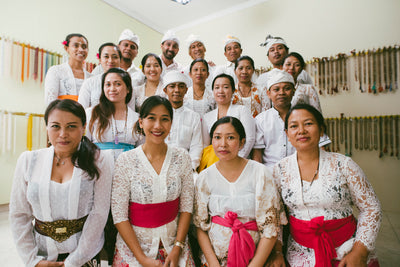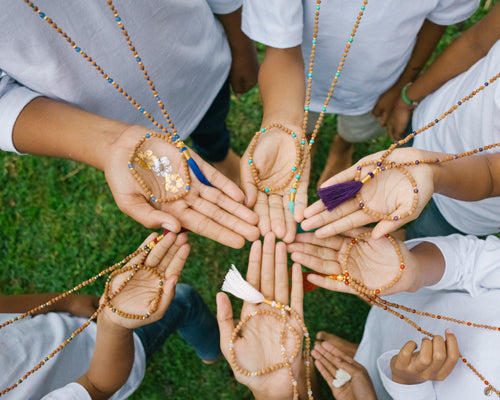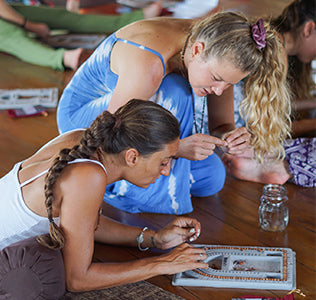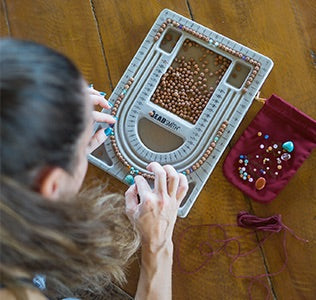Why Some People Feel Like Home, and How to Be One
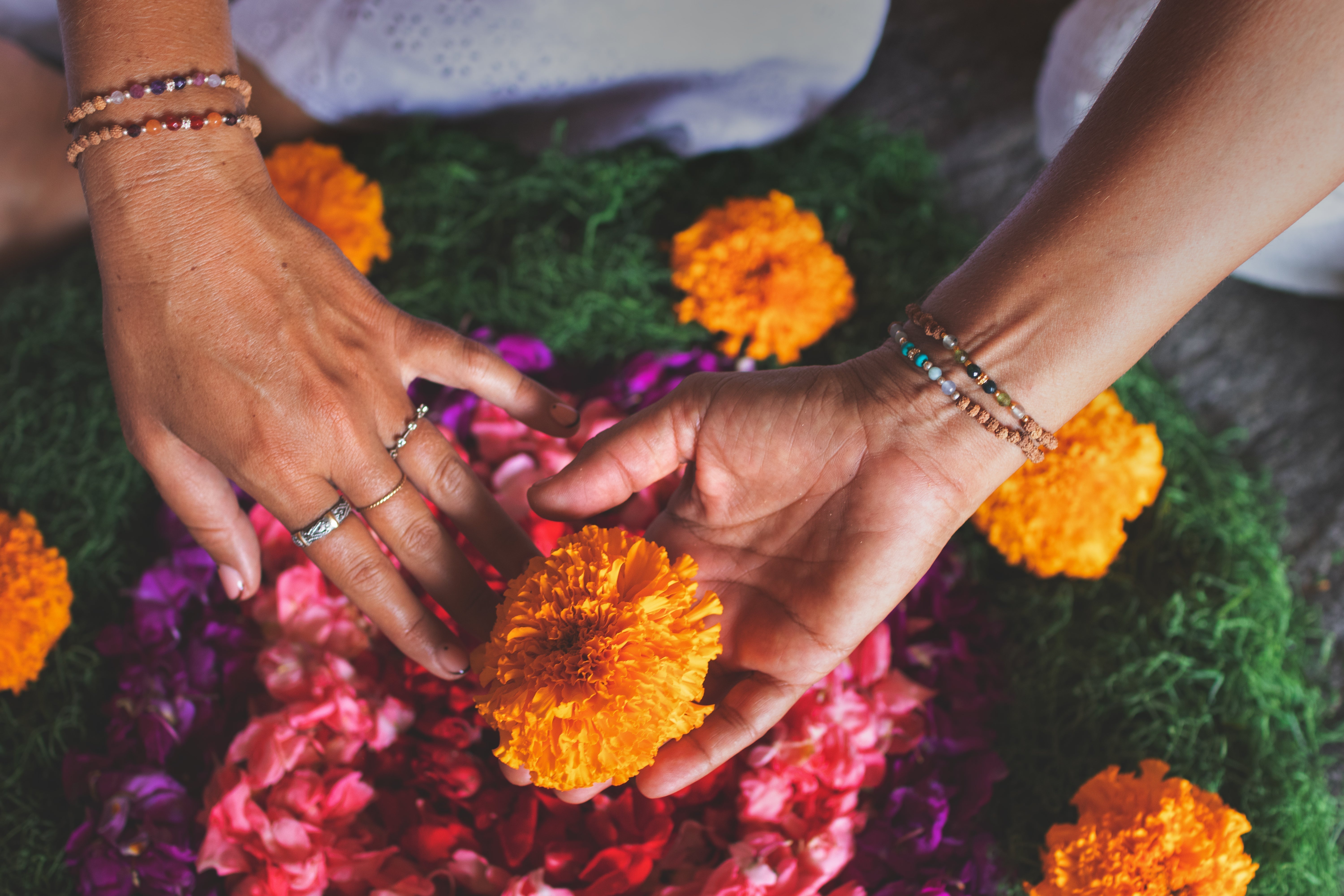
The world can feel chaotic, and that's in large part because people don't always take the time to understand each other. Everyone's caught up in their own world, dealing with their struggles, and in the process, we forget how to truly see one another.
A lot of this chaos comes from self-protection. We've all been hurt by family, love, disappointments, or life not happening as expected. Over time, we build invisible walls, thinking they'll keep us safe. But those same walls don't just block out pain; they also keep love and connection away. Without those, life starts feeling empty, like a constant battle to defend ourselves.
Harmony is the opposite of that. Harmony isn't something that happens, it's something we create by the way we move through life. It's what happens when we stop fighting, not in a way that means giving up, but in a way that says, I don't need to prove anything. I don't need to control everything. I need to be present, open, and real.
What Makes Someone Peaceful to Be Around?
Have you ever noticed how peace spreads like kindness? Some people make you feel at home, not because they have perfect lives or say all the right things, but because they've found peace within themselves.
They don't need to prove anything or control how others see them. They listen with an open heart, without judgment or ego. They don't react with anger because they know compassion is stronger. And in their presence, you feel safe, safe to be yourself, safe to speak, safe to simply exist.
This is what unites hearts: not always agreeing, not living in a perfect world, but choosing understanding over reaction, choosing to pause before speaking, seeing others through a lens of grace, remembering that everyone carries something unseen.
Imagine if we all moved through the world like that. If we met each other with kindness first, softened instead of resisted, chose connection over division, and remembered that most of the time, people's actions aren't really about us but about whatever they're struggling with inside. Life would feel different—lighter, less exhausting.
Respecting Differences is the Essence of True Harmony
It's easy to feel at peace with people who think like us. But what about those who see the world differently? Peace isn't about making everyone the same. That's not peace, that's control. Real harmony happens when we can stand side by side, completely different, and still see the humanity in each other.
Every person carries their own experiences, beliefs, and ways of seeing the world. What makes sense to you might not make sense to someone else, and that's okay. When you truly respect someone, you don't need them to agree with you. You don't need them to fit into your way of thinking. You just let them be. And in return, they let you be.
It is somehow hard to do because the ego wants to be right. It wants to convince, to prove, to win. And that's where the chaos starts when we see differences as something to fix instead of something to understand. It's not only about tolerating each other; it's about valuing each other, learning from each other, and knowing that contrast doesn't divide us; it makes us whole.
How Do We Become That Kind of Person?
It starts small. It starts inside. You don't wake up one day with endless patience and compassion, but you can become just a little softer today. Here are three key steps that can make a big difference:
1. Cultivate Self-Awareness
This is all about truly getting to know yourself, your emotions, triggers, strengths, and even challenges. When you understand why you react in certain ways, you gain the power to pause, reflect, and choose a more peaceful response. Think of it as building a solid foundation for everything else. By accepting who you are, imperfections and all, you create an inner calm that naturally radiates outwards.
For example, you're conversing with a close friend and suddenly feel a surge of anger or frustration, maybe because something they said reminded you of a past hurt. Instead of immediately reacting, you take a moment to pause and recognize that your emotional response might be more about your past experiences than the present conversation. You could say, "I realize I'm getting a bit upset, and I think it's tied to something from my past. Can we take a moment so I can collect my thoughts?" This kind of self-awareness helps you manage your emotions and prevents the conversation from escalating unnecessarily.
2. Practice Empathy
Try to see the world through someone else's eyes. Understanding where another person is coming from opens up a bridge of understanding and connection. Empathy isn't just about feeling for others; it's about actively listening and really trying to grasp their experiences and emotions. This deep connection helps ease conflicts and creates a nurturing environment where everyone feels valued and heard.
Let's say your partner comes home visibly stressed after a difficult day. Instead of jumping straight into problem-solving or assuming what's wrong, you take a moment to empathize by saying, "I can see you're really stressed today. Do you want to talk about what happened, or would you prefer some quiet time?" This approach shows that you're tuned into their feelings and willing to provide the support they need, whether it's a listening ear or just some space.
3. Enhance Communication Skills
Transparent, honest, and kind interactions can go a long way toward creating harmony. It's not just about speaking; it's also about truly listening. When you communicate effectively, you reduce misunderstandings and build trust. Remember, it's okay to share your thoughts and feelings openly, and giving others the space to do the same is just as important. This honest, two-way street of dialogue is key to nurturing peaceful and meaningful relationships.
For instance, you and a family member disagree on handling a shared responsibility. Instead of resorting to blame ("You never help around the house!"), you might say, "I feel overwhelmed when I handle all the chores alone, and I'd appreciate some help. Can we figure out a plan that works for both of us?" With this statement, you're suggesting a collaborative solution, opening the door for a more understanding and productive conversation.
These things won't always be easy to do. Some days, you'll react. Some days, you'll close off. That's okay. Just come back to yourself. Come back to love. Because every time you choose peace, you bring more of it into the world.
The moment we stop resisting who we are.
The moment we stop expecting people to be different than they are.
The moment we stop believing, we need something else to be okay.
That's the moment we create true harmony.
So maybe the way to "do life" isn't about fixing the world. Perhaps it's about remembering how to be open, kind, and present. Maybe it's about trusting that life moves more gently with us when we move with love.



